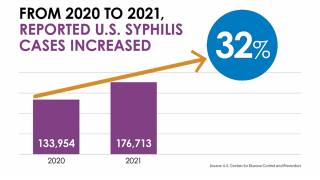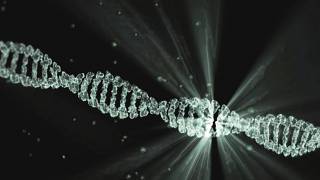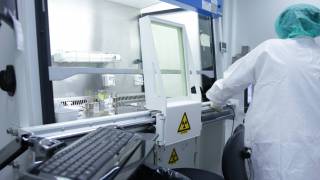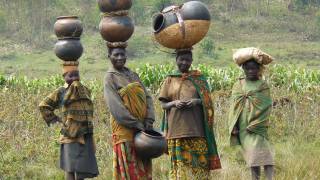Doctors, Nurses, and Pharmacists Can Increase HPV Vaccinations By Sharing Their Insights

A new cancer prevention study found a ‘lack of awareness for Human Papillomavirus (HPV) vaccination contributes to skewed public knowledge, which leaves many women and men at risk for HPV-related cancers.
Throughout this study published in JAMA on September 16, 2019, an overall lack of HPV awareness was found, with men exhibiting diminished knowledge of the virus and the HPV vaccine, when compared with women.
Led by several University of Texas researchers, this study highlighted one area that can be easily improved.
>> Gardasil 9 vaccine discounts <<
“Men are also less likely than women to know that the virus carries a risk of cancer,” said Ashish A. Deshmukh, Ph.D., MPH, assistant professor at UTHealth School of Public Health, who led the study.
This study reported about 19 percent of men and 31 percent of women had received a healthcare provider recommendation for the HPV vaccine over the last 12 months.
Previous studies have shown that a recommendation from ‘trusted healthcare professionals can help parents in their decision-making to vaccinate children.’
This is unfortunate news since HPV is a vaccine-preventable disease.
And, HPV is the most common sexually transmitted infection causing nearly all cervical cancers and some cancers of the vagina, vulva, penis, anus, and oropharynx.
>> Cervical Cancer Lab Test <<
Oropharyngeal cancer is the most common cancer attributable to HPV in all states, except in Texas, where cervical cancer was most common, reported the Centers for Disease Control and Prevention (CDC) on August 22, 2019.
In this study of 2,564 men and 3,697 women, there were 3 significant findings:
- In people aged 18-26 years, 92.2% of men and 79.4% of women were unaware that HPV causes anal, penile, and oral cancers,
- In people aged 27-45 years, 89.0% of men and 77.8% of women were unaware that HPV causes anal, penile, and oral cancers,
- In people older than 46 years of age, 84.7% of men and 77.6% of women were unaware that HPV causes anal, penile, and oral cancers
“The lack of knowledge among the general public regarding HPV is alarming. Pharmacists and other healthcare providers must refocus our efforts to educate our patients and increase immunization rates," said Chris Felton, PharmD, Clinical Pharmacist, MTM and Immunization Specialist for Brookshire Grocery Company.
"The need to coordinate and organize these efforts is apparent, and it should not be a difficult message to convey since we are talking about a vaccine that can literally protect you from cancer," continued Felton.
"Low levels of HPV knowledge in these older age groups is particularly concerning, given that these individuals are (or will likely be) parents responsible for making HPV vaccination decisions for their children," said Kalyani Sonawane, Ph.D., assistant professor at UTHealth School of Public Health, the study's co-lead author.
Previous studies reviewed the positive impact of vaccine recommendations from a healthcare professional, such as these articles:
According to the CDC, HPV vaccination coverage in the USA remains far below the Healthy People 2020 goal of 80 percent.
Currently, CDC recommends young women and men ages 9-14 to receive a 2-dose immunization, with a 3-dose schedule recommended to adolescents who are given their first dose on or after 15 years of age.
>>Search for Clinical Trials <<
There are 3 HPV vaccines that are now being marketed in many countries throughout the world - a bivalent, a quadrivalent, and a nonavalent vaccine.
Most HPV-related cancer cases could have been prevented by the Gardasil 9 vaccine.
The Gardasil 9 vaccine consists of HPV proteins, Types 6, 11, 16, 18, 31, 33, 45, 52, and 58.
Gardasil 9 also is indicated to help protect men ages 9 to 45 against anal cancer and genital warts caused by those same HPV types.
Others who took part in this research include Ryan Suk of UTHealth in Houston; Jane R. Montealegre, PhD, of Baylor College of Medicine; Gizem S. Nemutlu, PhD, of Massachusetts General Hospital in Boston; Alan G. Nyitray, PhD, of Medical College of Wisconsin in Milwaukee; and Kathleen M. Schmeler, MD, of The University of Texas MD Anderson Cancer Center.
Funding for this research came from the National Cancer Institute (R01CA232888), part of the National Institutes of Health. No researcher conflicts were disclosed.
HPV Vaccine news published by Vax Before Cancer.
Our Trust Standards: Medical Advisory Committee
- Public Knowledge of Human Papillomavirus and Receipt of Vaccination Recommendations
- Most American adults do not know that HPV causes oral, anal, and penile cancers
- CDC: National, Regional, State, and Selected Local Area Vaccination Coverage Among Adolescents Aged 13–17 Years — United States,
- Healthy People: Immunization and Infectious Diseases


























